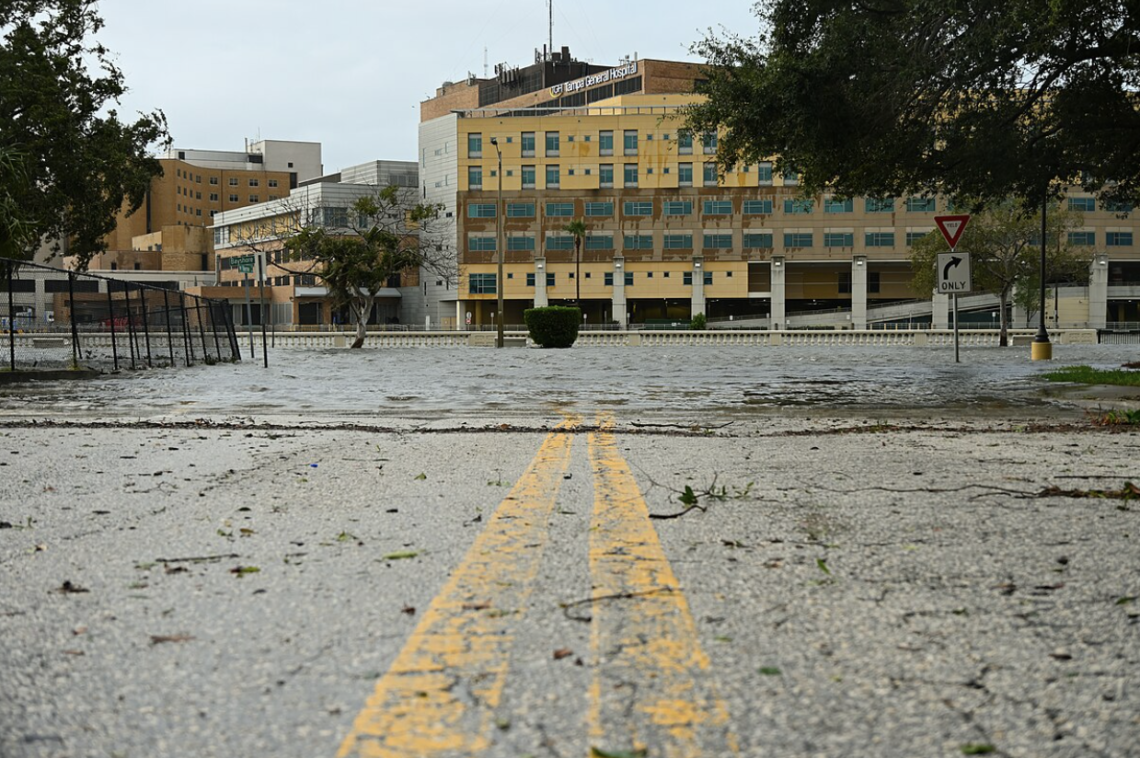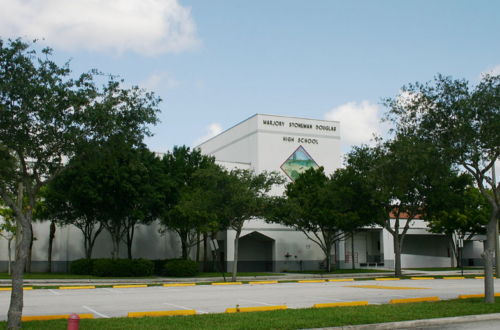As Hurricane Idalia ripped through the Sunshine State with 125 mph winds, several Floridians were left devastated.
Florida residents would expect that Gov. Ron DeSantis’ plan for hurricane relief would help provide immediate relief to mend these broken towns, but many locals disagree.
DeSantis is currently on his nation-wide political campaign for presidency — claiming to put his “partisan politics” aside and run to Florida’s aid.
“There’s time and a place to have political season, but then there’s a time and a place to say that this is something that’s life-threatening,” DeSantis said in a news brief.
Claiming to put aside his campaign and tour across the country, DeSantis was not present at badly hit communities, and if he was, it was at his own accord.
President Joe Biden, First Lady Dr. Jill Biden and U.S. Sen. Rick Scott, R-Fla., visited devastated communities in Florida including Live Oak and others surrounding the Big Bend area — stressing the federal government will help out in any way possible. But, DeSantis was nowhere to be found.
Only a single day after these visits occurred, on Sept. 3, DeSantis held his own press conference at the Yankeetown Water Plant. With the conference held close to 100 miles away from Live Oak, he seemingly abandoned his former statement that politics were to be put aside due to Hurricane Idalia.
DeSantis later told reporters his reason for not attending the essential conference with the President was because “it would be very disruptive to have the whole security apparatus that goes” to such communities impacted by the hurricane. He later said there are only “so many ways to get into” these struggling towns and counties.
While Florida’s own governor refuses to put aside politics to show a unified front in support of Florida, local community members still struggle to return to normalcy.
Holli Miller, a 52-year-old volunteer and Live Oak resident, took it upon herself along with other community members to provide hurricane aid support to residents who need it. They are donating pet food, among other ways of providing aid.
“Suwannee is a truly livestock-heavy town where many of its citizens are living paycheck to paycheck,” Miller said. “These community members are receiving little to no help.”
Miller has experience working in disaster relief throughout the United States and details the hardship her and her surrounding communities still face.
Miller describes the process of receiving aid and resources for communities impacted. Requests have to go through a counties’ Emergency Operations Center, but she said members of Miller’s community were just given a flier from the county and were expected to request the resources for themselves.
This creates an unrealistic expectation of who is supposed to request this aid, where citizens are relying on the county to do so, and the county is expecting the citizens to request the desperately needed resources.
“This creates a never ending loop that accomplishes nothing,” she said.
Community members are expected to request what resources they need, instead of the counties themselves requesting it, leaving citizens helpless and struggling.
In Live Oak and surrounding communities, Miller also said community members are struggling to make ends meet. Many are unable to provide basic needs for pets or livestock, or keep a generator up and running for even just a few hours, she said.
DeSantis imposed a disaster preparedness tax, regarding generators on May 25 to be effective through Aug. 26 through Sept. 8— this tax helped community members buy generators, however, once generators are bought there are no funds to help these generators continue to run.
Mayor of Live Oak Frank Davis said he was “overwhelmed with the massive response from the state” and he “could not say enough good things” about the Florida Division of Emergency Management.
Not recognizing these clearly struggling members, the mayor feeds into this “never ending” loop where these members are receiving no aid for their livestock or basic needs.
With so many individuals struggling to pay out of pocket, living from paycheck to paycheck, still out of work, the true effectiveness of DeSantis’ hurricane relief plan and holiday tax for generators is questionable.
This community and countless others in the Big Bend Region are not able to afford to keep generators up and running.
With little to no help being given, the residents of these small towns, like Holli Miller, feel the need to take it upon themselves to build back their communities as they continue to be overlooked by their representatives.





